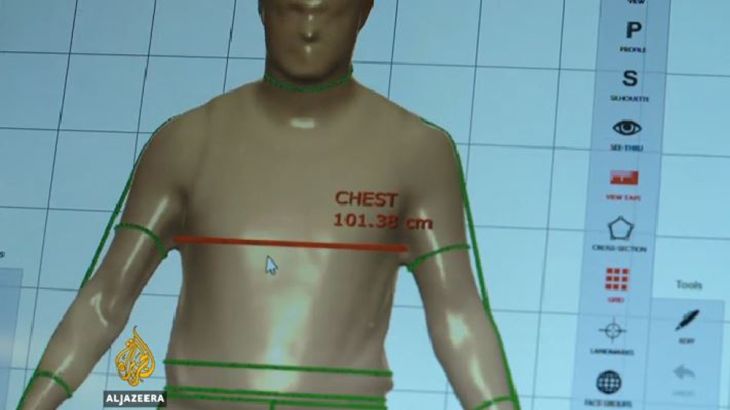3D body scanning set to disrupt clothing industry
Cheap yet advanced body-scanning technology looks set to reshape the online and tailored clothing industries.

It is estimated that up to half of the clothes bought online are returned to the seller, frequently because they are the wrong size.
This costs sellers millions of dollars in extra shipping costs and warehouse fees, putting a dent into their profits. It also frustrates many of those buying the clothes.
Keep reading
list of 4 itemsCould shipping containers be the answer to Ghana’s housing crisis?
Are Chinese electric vehicles taking over the world?
First pig kidney in a human: Is this the future of transplants?
“The problem is to provide to the garment industry a reliable tool in order to give consistent size advice, fast and reliable for the customers,” says Lara Mazzoni , the founder of start-up Bodi.me
|
|
Her solution makes use of simple and inexpensive motion-capture devices like those found in video-gaming hardware. These take 35 precise body measurements and create a visual avatar, which is then stored online. This data can be made accessible to sellers to help them suggest the right size of clothing.
“We feel it is very accurate and feel it is really targeting and solving a problem that the industry is facing right now,” says Mazzoni.
Customers, though, appear reluctant to embrace the technology. The next version of the Bodi.me display interface will not include a visual avatar as Mazzoni says it can appear unflattering and put people off.
Other experts in the field say it will only gain wider acceptance if it is integrated into existing personal data.
“Is it part of your health app that you need to have a body scan in order to get the best data?” says Lynne Murray from London College of Fashion.
“If so, you may be more likely to have that data to hand, which you can then appropriate to other environments such as retail where you need to find the perfect in an online or an in-store environment.”
The technology has also caught the attention of high-end luxury tailors like Scabal on London’s Saville Row.
“The technology gives all the measurements, everything you need,” says Giovanni Luigi Bordone from Scabal.
“But this is just part of the truth. There is the fit, the comfort, the subjective individual taste. It’s going to be quite challenging to put them together but I think that it is the way forward.”
Other tailors are less convinced by the new 3D body scanning technology.
“You need to be sort of getting close to people, understanding them, really understanding what they want,” says Ray Stowers from Stowers Bespoke.
“I can’t see how you can do that with a machine.”
Scanning companies say their latest software, which makes use of the cameras and powerful computing power inside the latest tablets and smartphones, will soon be the main way we will scan our bodies. They say this will be done from comfort of home.
A better fit, they say, will be better for business and once perfected, the technology will iron out one of the major problems of online shopping.
“I think there are lots of different ways that these types of extremely exciting technologies can start to connect together,” says Murray.